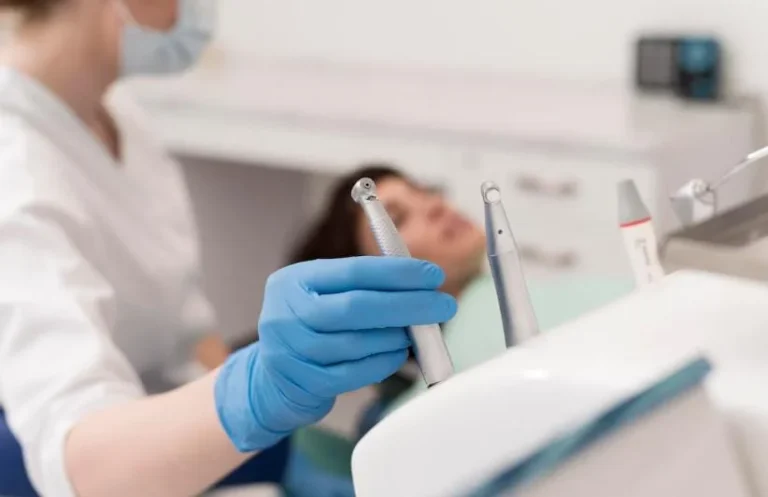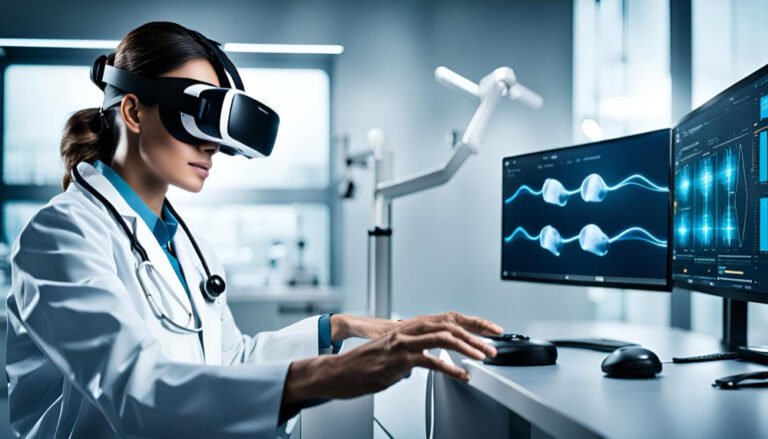Can AI help cure Different diseases?
Welcome to the fascinating world of Artificial Intelligence (AI), where cutting-edge technology is revolutionising the way we approach healthcare. Imagine a future where diseases can be diagnosed and treated with unprecedented accuracy and efficiency, all thanks to the power of AI. Today, we delve into the realm of AI in healthcare to explore its potential to cure diseases and transform the landscape of medicine as we know it. Can AI help cure different diseases? Let’s find out together!
How AI Is Revolutionising The Healthcare Industry
Artificial Intelligence (AI) is making waves in the healthcare industry like never before. Its ability to analyse vast amounts of data quickly and accurately has opened up new possibilities for disease diagnosis and treatment. AI algorithms can sift through patient records, lab results, and medical images to identify patterns that human doctors may miss.
By leveraging machine learning and deep learning techniques, AI systems are becoming more adept at predicting diseases early on, leading to proactive interventions that can potentially save lives. Moreover, AI-powered tools can assist physicians in designing personalised treatment plans based on individual patient data.
One of the most significant impacts of AI in healthcare is its role in drug discovery. By speeding up the process of identifying potential compounds for new medications, AI is helping researchers develop novel treatments faster than ever before. This accelerated pace could mean breakthroughs in curing diseases that were once deemed untreatable.
In essence, AI’s integration into the healthcare industry represents a paradigm shift towards more efficient and effective care delivery. The potential for improving patient outcomes and revolutionizing disease management is immense as we continue to unlock the full capabilities of this transformative technology.
Real-World Examples Of AI Being Used In Disease Diagnosis And Treatment
Artificial Intelligence (AI) has emerged as a game-changer in the healthcare industry, revolutionising disease diagnosis and treatment. One real-world example of AI making strides in this field is IBM’s Watson for Oncology, which helps oncologists identify personalised treatment options for cancer patients by analysing vast amounts of data. Another notable application is Google’s DeepMind Health, which utilises machine learning algorithms to assist with the early detection of eye diseases like diabetic retinopathy.
Moreover, researchers at Stanford University have developed an AI system that can predict patient outcomes and recommend tailored treatments for cardiovascular diseases with impressive accuracy. Additionally, companies like PathAI are leveraging AI to improve pathology services by enhancing the speed and accuracy of diagnosing diseases like cancer through image analysis.
These innovative applications demonstrate the immense potential of AI in transforming disease diagnosis and treatment paradigms.
The Potential For AI To Cure Diseases
As technology continues to advance at a rapid pace, the potential for artificial intelligence (AI) to revolutionise healthcare and potentially cure diseases is becoming increasingly promising. AI has shown tremendous capabilities in analysing vast amounts of data quickly and accurately, which is crucial in diagnosing complex diseases.
By leveraging machine learning algorithms, AI can identify patterns and trends that may not be apparent to human doctors. This ability allows for earlier detection of diseases, leading to more timely intervention and treatment strategies. Additionally, AI-powered systems can provide personalised medicine by tailoring treatments to individual patients based on their unique genetic makeup and medical history.
Furthermore, AI holds the potential to enhance drug discovery processes by predicting how drugs will interact with specific biological targets. This predictive capability could lead to the development of more effective medications with fewer side effects. The possibilities for using AI in disease treatment are vast and continue to evolve as technology progresses.
Ethical Considerations Surrounding The Use Of AI In Healthcare
When it comes to integrating AI in healthcare for disease treatment, ethical considerations play a crucial role. One of the main concerns is data privacy and patient confidentiality. As AI algorithms analyse vast amounts of sensitive medical information, ensuring that this data is secure and protected from breaches is paramount.
Another ethical dilemma revolves around bias in AI algorithms. If these systems are not carefully designed and monitored, they can perpetuate existing biases in healthcare, leading to unequal treatment for certain groups of patients. It’s essential to address these biases proactively through rigorous testing and validation processes.
Moreover, transparency in how AI makes decisions is key. Patients have the right to understand why a particular treatment recommendation was made by an AI system. Ensuring transparency can help build trust between patients, healthcare providers, and technology developers.
Navigating the ethical landscape of using AI in healthcare requires thoughtful consideration and continuous oversight to uphold patient rights and promote equitable access to quality care.
Challenges And Limitations Of Using AI For Disease Treatment
As with any groundbreaking technology, there are challenges and limitations associated with using AI for disease treatment. One major hurdle is the need for vast amounts of high-quality data to train AI algorithms effectively. Without access to comprehensive and diverse datasets, the accuracy and reliability of AI in diagnosing and treating diseases may be compromised.
Another challenge is ensuring the ethical use of AI in healthcare settings. Issues such as patient privacy, consent, and bias must be carefully addressed to maintain trust in the technology. Additionally, regulatory frameworks surrounding the implementation of AI in medicine are still evolving, creating uncertainty around legal implications.
Furthermore, the complexity of human biology poses a significant limitation to AI’s capabilities in accurately predicting disease outcomes or responses to treatment. The intricate nature of diseases requires a deep understanding that AI may struggle to fully grasp without further advancements in algorithm development.
Incorporating AI into healthcare also demands significant financial investment for research, development, infrastructure, and training healthcare professionals on how to effectively utilise these technologies. This financial burden can present obstacles to widespread adoption across various healthcare systems globally.
Future Possibilities And Advancements In AI For Disease Cures
As we look towards the future, the possibilities for AI in disease cures are truly groundbreaking. With ongoing advancements in machine learning and data analysis, AI is poised to revolutionise not only how diseases are diagnosed but also how they are treated.
One exciting area of development is personalised medicine, where AI algorithms can analyse a patient’s unique genetic makeup to tailor treatment plans specific to their individual needs. This level of precision medicine has the potential to significantly improve patient outcomes and reduce side effects.
Furthermore, AI-powered robots are being developed to assist surgeons during complex procedures, increasing precision and reducing human error. These robotic systems can access real-time data and provide valuable insights that help doctors make informed decisions during surgeries.
The future of AI in disease cures looks promising as researchers continue to explore new applications and technologies that have the potential to transform healthcare as we know it.
Aiotechnical.com’s Perspective On Can AI Help Cure Diseases
At Aiotechnical.com, we believe in the transformative power of AI when it comes to curing diseases. Our perspective is centred around leveraging cutting-edge technology to revolutionise healthcare and improve patient outcomes. Through innovative algorithms and machine learning techniques, AI has the potential to enhance disease diagnosis and treatment processes.
By harnessing the vast amount of data available in healthcare systems, AI can assist medical professionals in making faster and more accurate decisions. This can lead to earlier detection of diseases, personalised treatment plans, and ultimately better prognoses for patients. The integration of AI into clinical workflows has the capacity to streamline operations, reduce costs, and optimise resource allocation within healthcare settings.
As pioneers in the field of AI health solutions, we are committed to pushing boundaries and exploring new frontiers in disease management. Our team continuously explores how AI technologies can be harnessed to address some of the most pressing challenges in medicine today. With a focus on innovation and collaboration with healthcare providers, we strive towards a future where AI plays a pivotal role in curing diseases.
Conclusion
The potential of AI in curing diseases is undeniable. With its ability to analyse vast amounts of data quickly and accurately, AI is revolutionising the healthcare industry. Real-world examples have shown promising results in disease diagnosis and treatment, offering new hope for patients worldwide.
While there are ethical considerations and challenges to overcome, the future possibilities are endless. As technology continues to advance, AI will play an increasingly crucial role in finding cures for complex diseases.
At Aiotechnical.com, we believe that with ongoing research and development, AI can truly help cure diseases and improve global health outcomes. Embracing this transformative technology is key to unlocking a healthier future for all. Let’s continue to explore the power of AI in healthcare and strive towards a world where diseases are not just treated but cured through innovative solutions.







